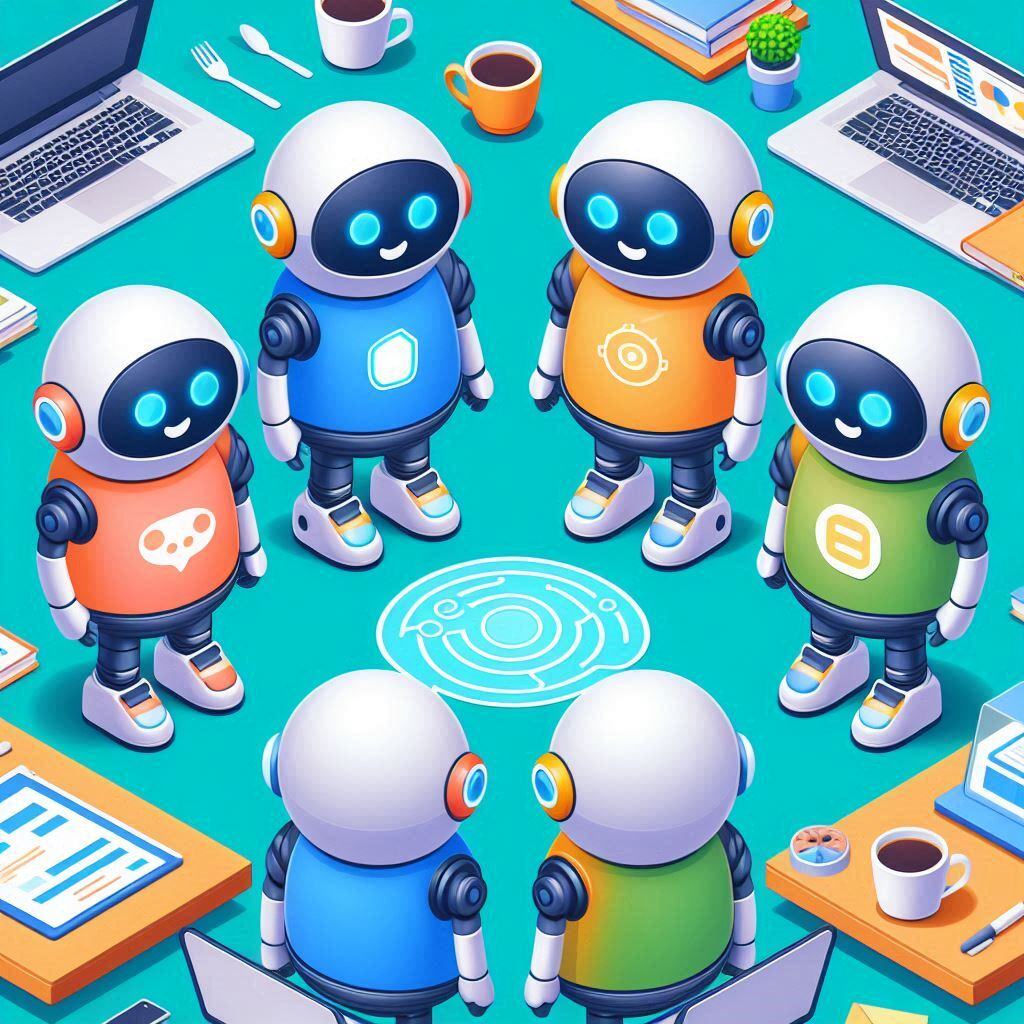Small Business Using AI for Marketing Guide
Small businesses are increasingly adopting AI to enhance their marketing efforts, enabling them to compete with larger enterprises. By leveraging AI,...
Discover how AI can transform small businesses by enhancing customer service, automating operations, and driving growth.
Artificial Intelligence (AI) is no longer a futuristic concept; it's a practical tool that small businesses can leverage today to improve operations, enhance customer experiences, and drive growth. AI offers a range of applications tailored to the unique needs of small businesses, helping them compete with larger enterprises by automating processes, providing data-driven insights, and personalizing customer interactions. This blog will explore how AI can be effectively used in small businesses, providing actionable insights and examples that can help your business thrive.
Customer service is a critical aspect of any small business, and AI-powered chatbots can revolutionize how you interact with your customers. Chatbots can handle routine inquiries, such as answering frequently asked questions or processing orders, freeing up your staff to focus on more complex issues.
Benefits:
Example: A local e-commerce store could use a chatbot to assist customers with product inquiries, track orders, and handle returns, providing a seamless shopping experience.
Automation is one of the most significant advantages AI offers to small businesses. By automating repetitive tasks, businesses can save time and reduce human error, leading to more efficient operations.
Applications:
Example: A small retail store can use AI to manage inventory levels, automatically reordering stock when levels are low, ensuring that popular products are always available.
AI can analyze vast amounts of data to provide small businesses with insights that would be difficult to obtain manually. These insights can be used to optimize marketing strategies, making them more effective and targeted.
Applications:
Example: A small digital marketing agency can use AI to analyze client data, identifying trends and preferences that can be used to create more effective marketing campaigns.
AI can provide small businesses with powerful analytical tools that offer insights into every aspect of their operations. By analyzing data from various sources, AI can help business owners make informed decisions that drive growth and efficiency.
Applications:
Example: A small accounting firm can use AI to analyze client data, providing insights into financial health and identifying opportunities for savings or investment.
Personalization is key to building strong customer relationships, and AI can help small businesses provide personalized experiences that drive loyalty and repeat business.
Applications:
Example: A small online bookstore can use AI to recommend books based on a customer's past purchases, enhancing the shopping experience and increasing sales.
Hiring the right talent is crucial for small businesses, and AI can streamline the recruitment process by automating various tasks and providing data-driven insights into candidates.
Applications:
Example: A small tech startup can use AI to streamline the hiring process, quickly identifying top talent and reducing the time and cost associated with recruitment.
Financial management is a critical aspect of running a small business, and AI can help business owners manage their finances more effectively by providing insights and automating tasks.
Applications:
Example: A small restaurant can use AI to track expenses and manage budgets, ensuring that they remain profitable while controlling costs.
Security is a top concern for small businesses, and AI can provide robust solutions to protect against cyber threats and ensure the safety of sensitive information.
Applications:
Example: A small financial services firm can use AI to monitor transactions and detect fraudulent activity, protecting their clients' sensitive information.
Understanding the competition is crucial for small businesses, and AI can provide insights into competitors' strategies, strengths, and weaknesses.
Applications:
Example: A small retail business can use AI to monitor competitors' pricing and promotions, adjusting their own strategies to stay competitive in the market.
AI can provide valuable insights into product development, helping small businesses create products that meet customer needs and stand out in the market.
Applications:
Example: A small tech company can use AI to analyze user feedback on a new app, identifying areas for improvement and ensuring a successful launch.
Incorporating AI into small business operations isn't just a trend—it's a strategic move that can significantly boost efficiency, customer satisfaction, and overall growth. Whether it's through AI-powered chatbots for enhanced customer service, automation tools for streamlining operations, or data-driven insights for more informed decision-making, AI provides small businesses with the tools they need to compete effectively in today's market.
By leveraging AI, small businesses can automate repetitive tasks, gain valuable insights, and personalize customer interactions at a level previously available only to large enterprises. As AI continues to evolve, its applications will only become more powerful and accessible, making it an essential component of any small business strategy.
For small businesses looking to get started with AI, the key is to identify areas where AI can have the most impact, such as customer service, marketing, and operations. Tools like Integrail can help businesses implement AI solutions without the need for extensive technical knowledge, ensuring a smooth transition and immediate benefits. With the right approach, AI can transform your small business, helping you to stay ahead of the competition and achieve long-term success.

Small businesses are increasingly adopting AI to enhance their marketing efforts, enabling them to compete with larger enterprises. By leveraging AI,...

Choosing to become a solopreneur is like deciding to take the scenic route on a road trip—you control the pace, choose your stops, and create your...

AI automation is reshaping the business landscape, revolutionizing how companies operate, innovate, and gain a competitive edge. But what exactly is...
Start your journey with Integrail

Try AI Studio by Integrail FREE and start building AI applications without coding.

NEW White Paper: Discover how AI Studio accelerates your workflows